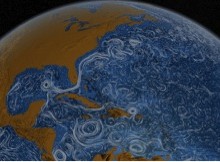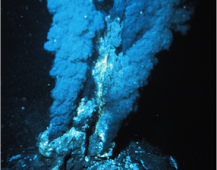Targeted metagenomics approach pins down role of “wild” alga
Marine microbes play key roles in cycling carbon between the atmosphere and the ocean depths, but little is known about their populations throughout the waters. As global temperatures change, so do these populations, which in turn impacts their contributions to the carbon cycle. Researchers want to learn more about these effects, but one of the… [Read More]

